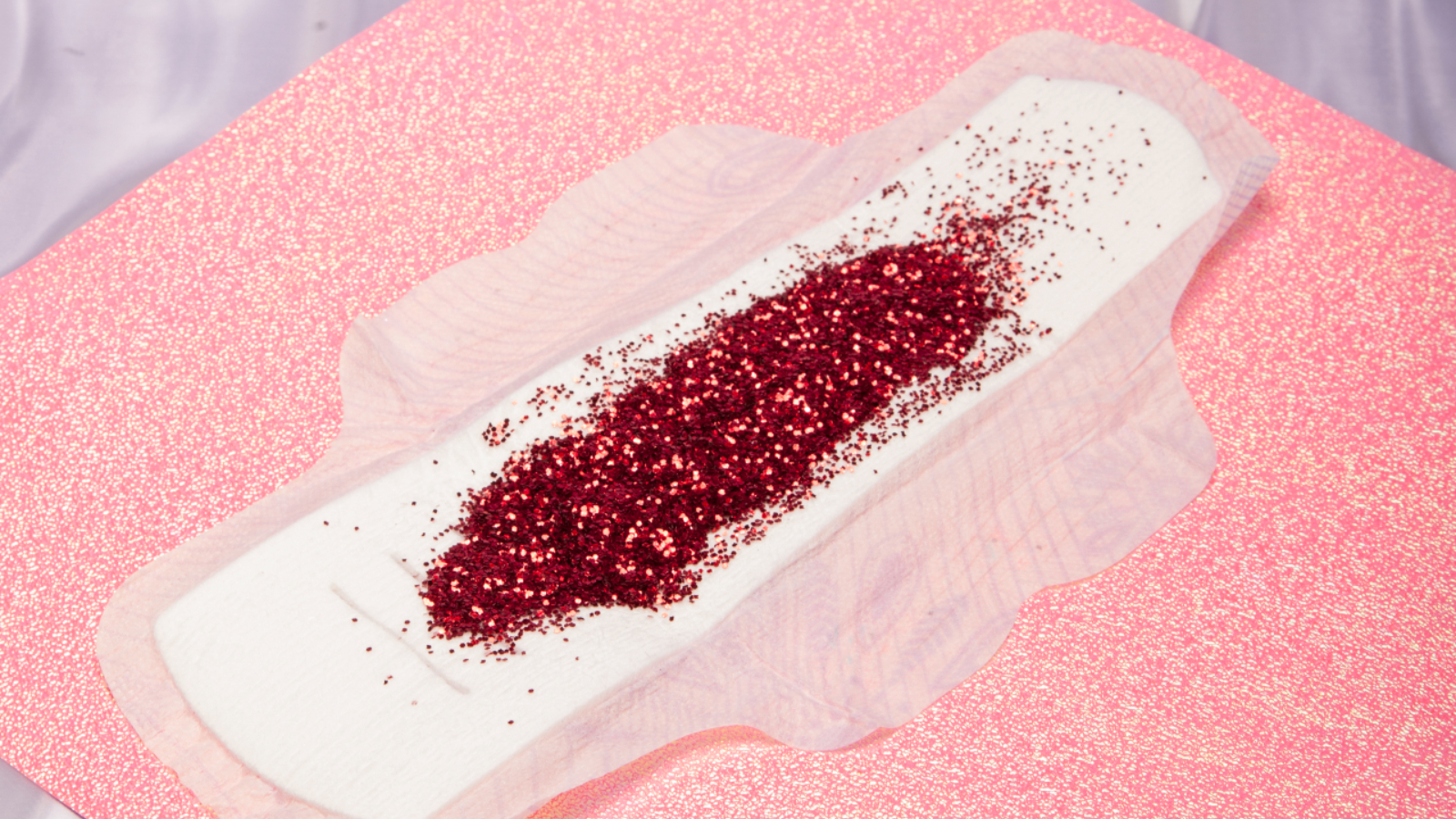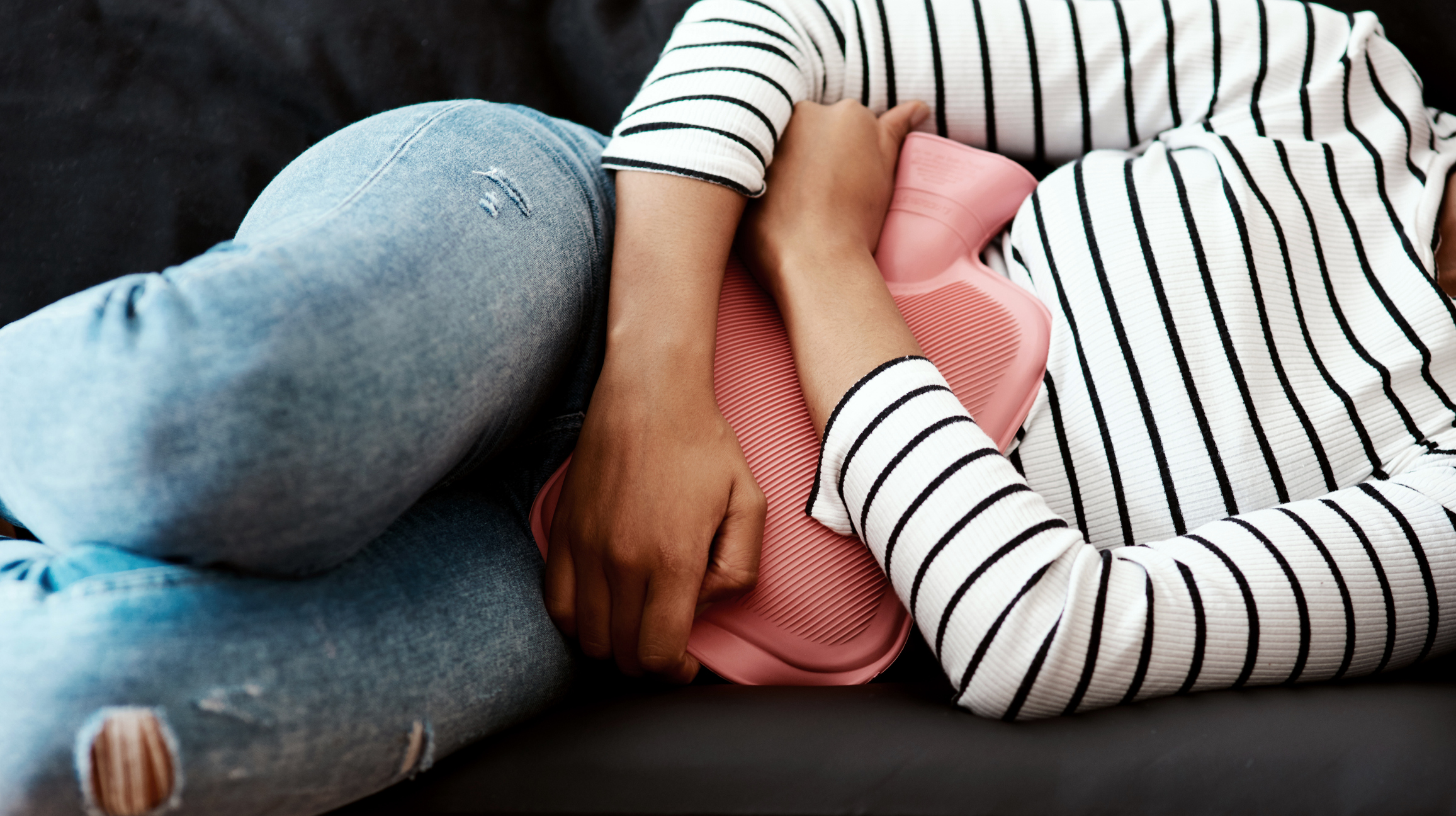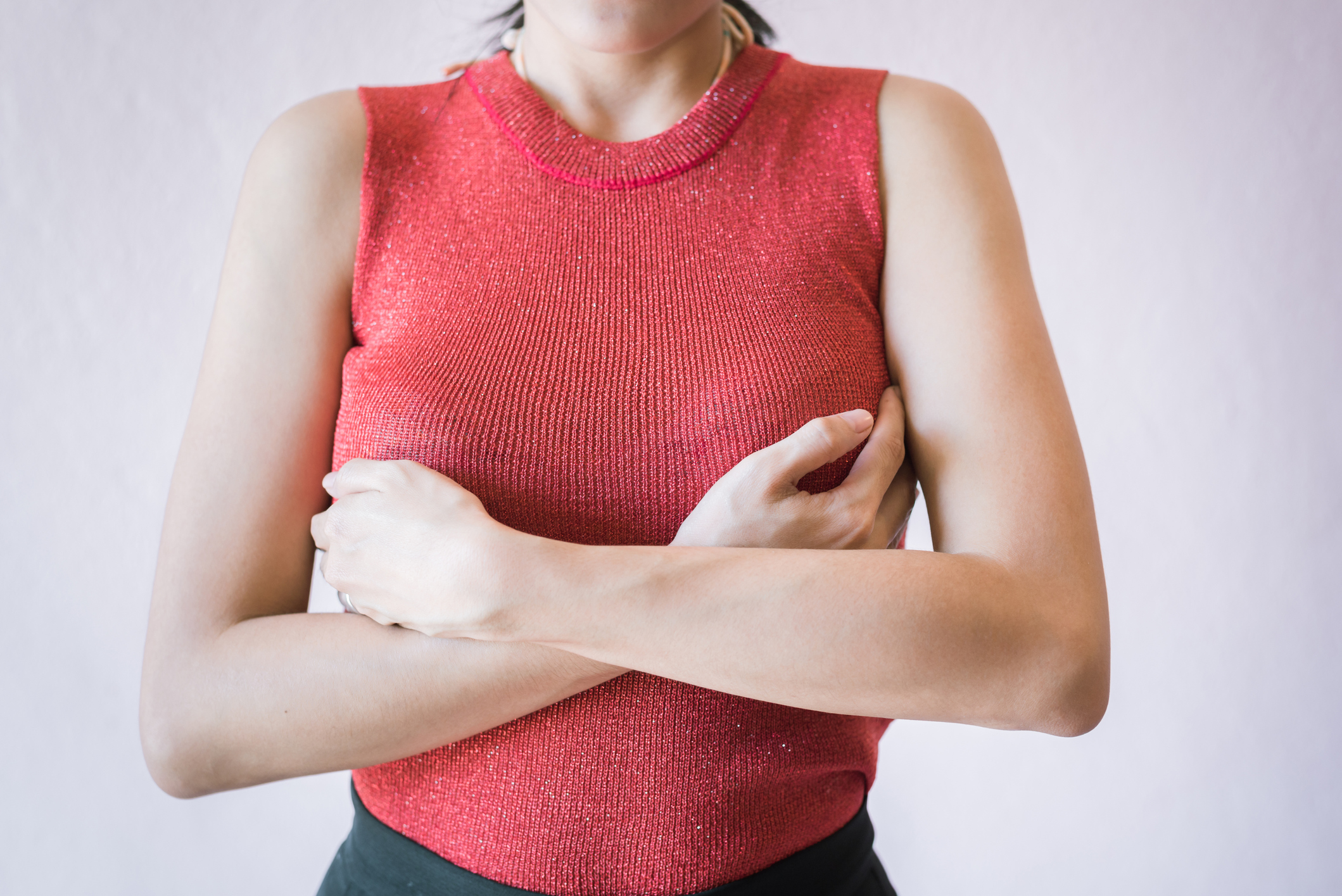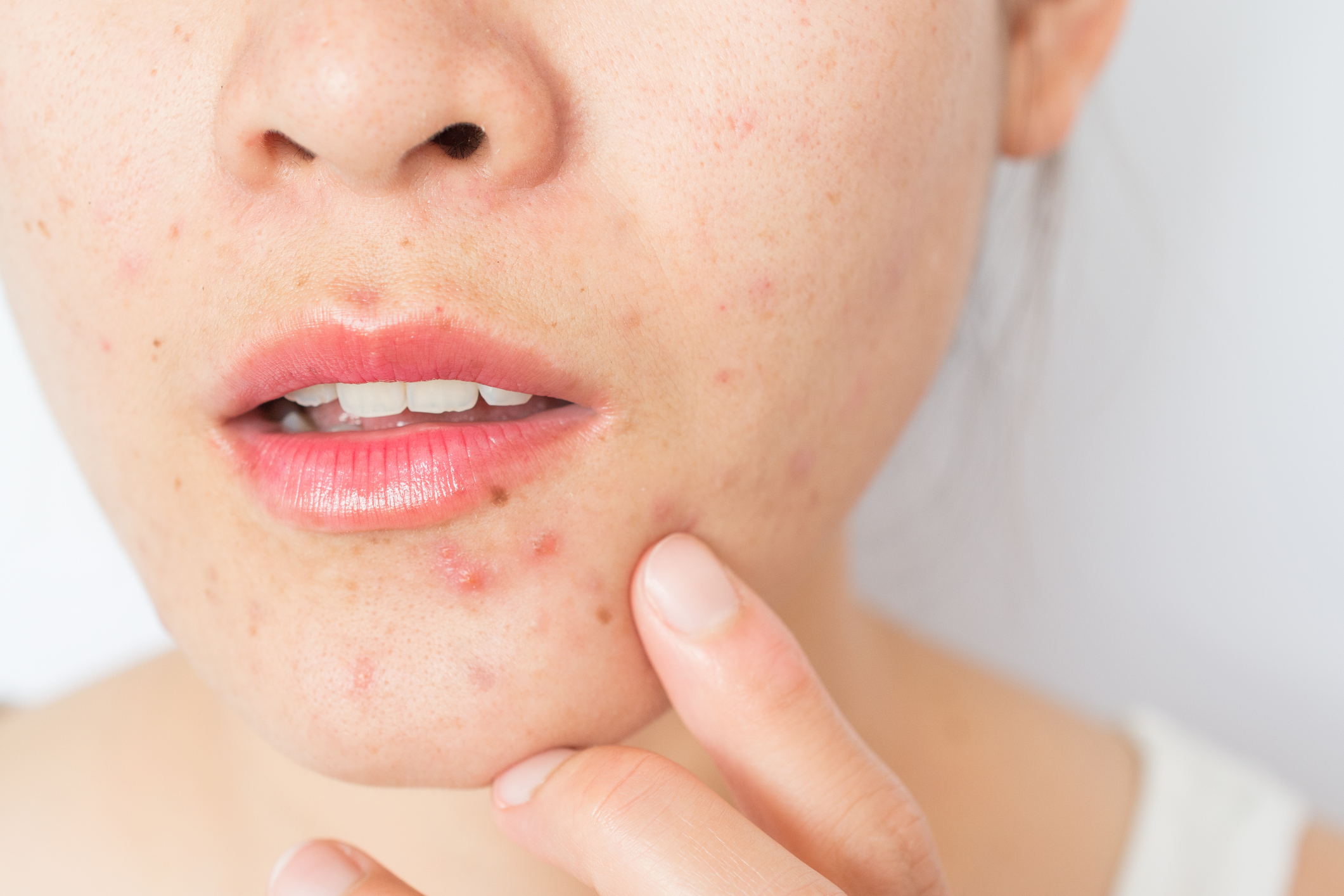How to deal with period pains and symptoms
We’ll take *any* suggestions to make our period pains and symptoms easier during that time of the month


If there’s something we can all agree on, it’s that period pains and symptoms suck. As if it wasn’t already annoying that we bleed every month, the fact that periods can also hurt is just a joke.
We all have our own way of coping with period discomfort (we go the Dairy Milk and rom-com route), but we’ve asked the experts for more info on how to deal with period cramps and aches, and how to know if something more serious is going on.
Periods can be a real source of anxiety, and sometimes there is no rhyme or reason to them. The weather can affect our periods, they can come early, late, be heavy or light, and sometimes we can even miss a period entirely. (These period tracker apps are great to make sure you keep an eye on things.) What we do know about them is that they always seem to emerge at the worst possible time—or maybe that's just us?
Symptoms-wise, cramps, headaches and fatigue are common, and in order to persevere through the month, it’s good to have some coping tips at hand and to know what worrying signs to spot.
How to deal with period pains and symptoms
Express Pharmacy’s Harman Bhamra explains that 90% of those who menstruate experience symptoms during their periods, with some reporting mild discomfort and others severe. While periods are unavoidable, there are things we can do to make them slightly more bearable.

1. Cramps
Cramps are one of the most common symptoms of periods and are usually caused by your uterus contracting. Ibuprofen and other anti-inflammatory pain relievers can help with swelling and cramps, and can even help reduce heavy bleeding.
Heat packs, hot-water bottles and soaking in a warm bath can also reduce inflammation and help the muscles relax.
While mild period cramps are normal, Bhamra explains that they shouldn’t be debilitating. If your period is so painful you need bed rest and time off work, there may be something more serious going on. Endometriosis is a very common gynecological condition. It affects one in 10 women and can take, on average, seven years to diagnose.
Bhamra says: “The reason for this is because the symptoms are very similar to typical period symptoms, especially tummy and lower back cramps. However, endometriosis sufferers experience this much more intensely.”
2. Headaches and migraines
Headaches and migraines are also very common during your period. Bhamra says: “Headaches and migraines are caused by hormone changes within the body as natural estrogen levels drop when the menstruation starts, and are commonly known as menstrual migraines.”
He also adds you can also experience dizziness and sensitivity to light during your time of the month.
Much like cramps, painkillers can help ease headaches, as can a cool compress and rest. But if you’re having frequent, intense migraines then you should see a medical professional.

3. Breast tenderness
Breast tenderness—the bane of our lives—is caused by the change in hormone levels, which means that you can find that your breasts swell and ache. Wearing supportive bras (like sports bras) during your period can really help. Also, make sure you and your partner are gentle with them—if you know what we mean.
While having sore breasts during your period is super common, knowing what is normal for you is really important. You need to examine your breasts regularly, and if you notice any changes to the skin or nipples, or feel any lumps, you should seek help.
4. Fatigue and trouble sleeping
Feeling drained and tired is also common with periods. Our hormone levels can affect our mood and the discomfort can make us feel sluggish. It can also make it hard to sleep, especially if you’re experiencing severe cramps.
Bhamra suggests avoiding caffeine and taking vitamins—such as vitamin C—but also notes that feeling extremely tired during your period could hint at Anemia, which is an iron deficiency and common with the blood loss that occurs during periods.
He says: “Identify how you feel after sleeping, as many tend to still experience severe exhaustion even after having a full night’s rest,
“If you notice you are feeling tired all the time, regardless of what you have done, then try to increase the amount of iron in your diet. Vitamin C, seafood and beans can help boost the amount of iron in your system.”

5. Breakouts
During menstruation, estrogen and progesterone levels drop, which can trigger your sebaceous glands to produce more oil and cause you to break out.
Bhamra says: “The level of oiliness which your skin experiences can differ, as it depends on your skin type. Those with naturally dry skin may not notice their skin feeling oilier, whereas those with oily skin may feel overwhelmed with how oily their skin becomes.”
Reducing your sugar intake and the use of oil on your skin can be beneficial. Having a good skincare routine with the best skincare ingredients such as salicylic acid and hyaluronic acid can help keep those breakouts at bay. Also, opt for a non-comedogenic foundation when wearing makeup.

Naomi is a Lifestyle News Writer with the Women's Lifestyle team, where she covers everything from entertainment to fashion and beauty, as well as TikTok trends for Woman&Home, after previously writing for My Imperfect Life and GoodTo. Interestingly though, Naomi actually has a background in design, having studied illustration at Plymouth University but lept into the media world in 2020, after always having a passion for writing and earned her Gold Standard diploma in Journalism with the NCTJ.
Before working for Future Publishing’s Lifestyle News team, she worked in the Ad production team. Here she wrote and designed adverts on all sorts of things, which then went into print magazines across all genres. Now, when she isn’t writing articles on celebs, fashion trends, or the newest shows on Netflix, you can find her drinking copious cups of coffee, drawing and probably online shopping.